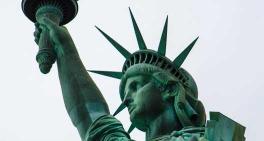Supreme Court conservatives attack lame-duck arguments
Featured Articles
Conservative justices who control the Wisconsin Supreme Court attacked liberal groups' claims Wednesday that Republican legislators met illegally when they passed laws limiting Democratic Gov. Tony Evers' and Attorney General Josh Kaul's powers during a lame-duck session last year, saying the Legislature can decide when it wants to meet.
That lame-duck session led to multiple legal challenges, including one by a coalition of liberal groups led by the League of Women Voters.
The coalition contends that the lame-duck session was illegal because the Legislature convened the vote as a so-called extraordinary session. Such sessions are previously unscheduled floor votes initiated by majority party leaders. The coalition maintains that the Wisconsin Constitution allows lawmakers to convene only at times laid out in a resolution they pass at the beginning of every two-year period or at the governor's call.
Dane County Circuit Judge Richard Niess agreed in March and invalidated all the laws passed during the lame-duck session. Republican lawmakers asked the Supreme Court to overturn that ruling.
The justices held oral arguments in the case Wednesday morning. The Republicans' attorney, Misha Tseytlin, began the proceeding by arguing that the Legislature can convene whenever it wishes.
The coalition's attorney, Jeffrey Mandell, argued that state law doesn't provide for extraordinary sessions. Justice Rebecca Bradley immediately cut him off, saying the Legislature has been meeting in extraordinary sessions for 40 years and no one has ever argued they were illegal. Mandell responded that sometimes it takes a "catalyzing event" to trigger a challenge.
Related listings
-
Supreme Court conservatives attack lame-duck arguments
Featured Articles 05/09/2019Conservative justices who control the Wisconsin Supreme Court attacked liberal groups' claims Wednesday that Republican legislators met illegally when they passed laws limiting Democratic Gov. Tony Evers' and Attorney General Josh Kaul's powers durin...
-
Court records: Illinois father led police to son's body
Featured Articles 05/06/2019Court records show that video police recovered from an Illinois woman's cellphone showing her bruised 5-year-old son prompted the boy's father to lead investigators to the child's body.JoAnn Cunningham and Andrew Freund Sr. of Crystal Lake are charge...
-
Indian court lifts ban on Chinese social media app TikTok
Featured Articles 04/24/2019An Indian court on Wednesday lifted its ban on Chinese social media video-sharing app TikTok on the condition that the platform popular with teenagers would not be used to host obscene videos.Justices N. Kirubakaran and S.S. Sundar warned TikTok that...

Car Accident Lawyers in New Rochelle, New York
If you have gotten in a car accident, it could seriously change your life. Whether the accident was caused by the other party’s fault or a fault of your own, you’ll want to to make sure that you are ready to prepare yourself for any cases that might follow.
Immediately following any type of car accident, it is important to take certain steps to ensure that the courts will treat you with respect and fairly. First, assess your mental and physical condition. Make sure right after the accident, you document any information regarding the accident and situation, it can be of great help later on.
You’ll want to make sure that you seek professional help for any medical conditions you may be experiencing. Do not wait to seek medical attention, you’ll want to make sure that you have documented evidence of the injury that was caused by the accident. The amount of treatment is also taken into consideration in every case.




